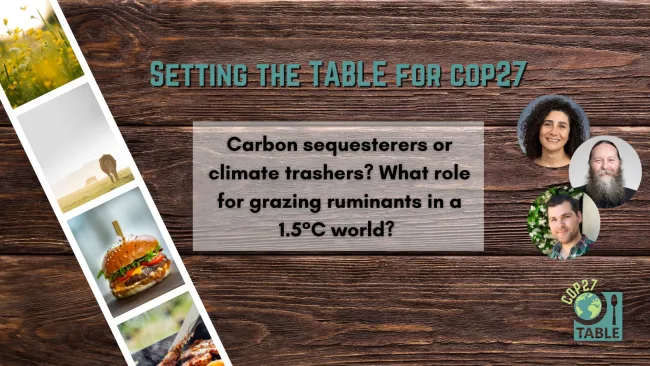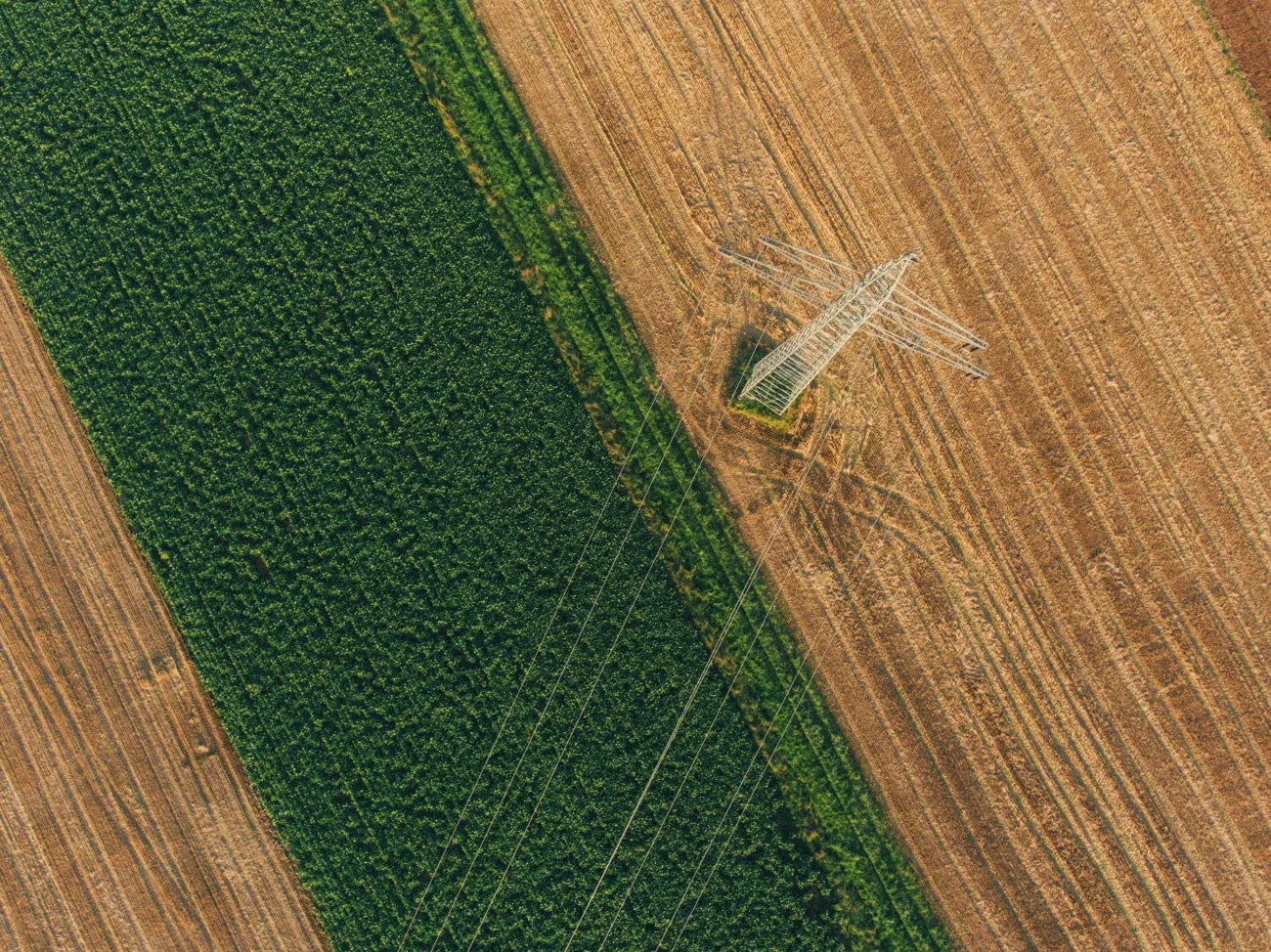This event was hosted by TABLE on 14 September 2022 and took the format of a panel discussion with:
Dr Tara Garnett (director of TABLE and fellow of the Oxford Martin School);
Professor Pete Smith (University of Aberdeen);
Professor M. Francesca Cotrufo (Colorado State University);
Assistant Professor Matthew Hayek (New York University).

This is a recording of the event "Carbon sequesterers or climate trashers? What role for grazing ruminants in a 1.5°C world?" which occurred on September 14, 2022.
In order to limit global warming to 1.5°C, we not only need to bring greenhouse gas (GHG) emissions down as close to zero as possible, but also actively take carbon dioxide (CO2) out of the atmosphere. The carbon sequestration potential of land has drawn increasing attention as the need to achieve negative emissions becomes ever more urgent.
When it comes to agriculture, the role of ruminant livestock (e.g., cattle, sheep, and goats) in sequestering CO2 through grazing on the one hand, and in contributing to GHG emissions and other environmental damage on the other have become highly polarized topics of debate. Some argue that well-managed grazing systems can help draw down CO2 from the atmosphere and lock it in soils, while yielding a range of other benefits for water and biodiversity. Others, however, highlight the association between ruminant livestock expansion, deforestation, and soil degradation, with accompanying declines in soil quality, water retention and biodiversity.
So what does the science actually say? How do the specificities of local context fit into our understanding of global land use interactions and into wider debates about what a good food system looks like?
The anonymized text of the Q&A from the event is available here.




Comments (0)